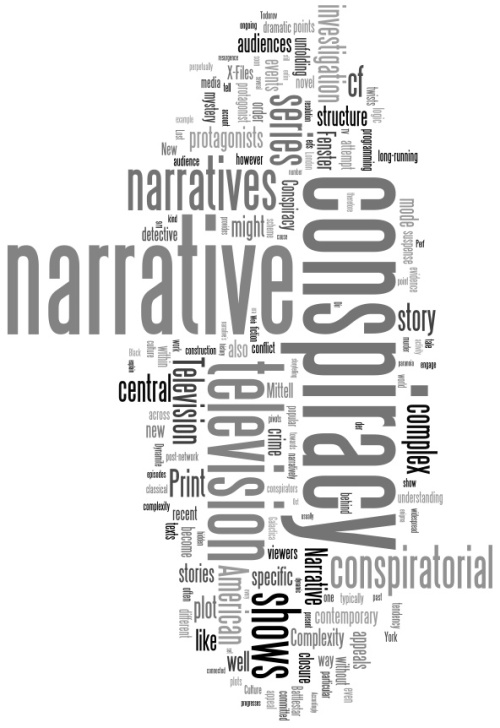My colleague and office-mate, Felix Brinker, has just published an exciting article on what he calls the “conspiratorial mode” of storytelling in recent American TV series. This was part of a larger project — Felix’s MA thesis — so perhaps we can expect to see other aspects in the future (maybe also in connection with his PhD?). In the meantime, here is the abstract for the article, which appears in Aspeers 5 (2012): 87-109:
Hidden Agendas, Endless Investigations, and the Dynamics of Complexity: The Conspiratorial Mode of Storytelling in Contemporary American Television Series
Felix Brinker
Contemporary American television shows such as Lost, Battlestar Galactica, 24, Alias, or Fringe construct long-running story-arcs around central narrative enigmas in order to inspire committed and regular viewing. In the unfolding of their central storylines such shows perpetually resist closure and defer the resolution of their central conflicts. The specific narrative trajectory of these shows, this paper argues, is best understood if viewed through the lens of conspiracy theory – or, rather, if these shows are conceptualized as conspiracy narratives: as crime fictions of a grand (and, at times, cosmic) scope, as stories that circle around a potentially endless conflict between cunning protagonists and nefarious hidden powers, between investigations and cover-ups. In such programs conspiracy is more than just a thematic preoccupation — it also functions as an organizational logic or structure that governs the way in which these shows tell their stories.
I argue that the success of such programs is indebted to this particular way of storytelling, which I call the ‘conspiratorial mode.’ This article sketches the narrative structure of conspiratorial programs, situates them in the context of post-network television, and considers their curious dynamics of narrative progression and deferral. Finally, it offers an account of the shared characteristics of shows that partake in the conspiratorial mode of storytelling and suggests reasons for the recent prominence of conspiracy narratives in American television beyond and apart from a paranoia that is supposedly widespread in contemporary American culture.
The full text of the article can be found here.
